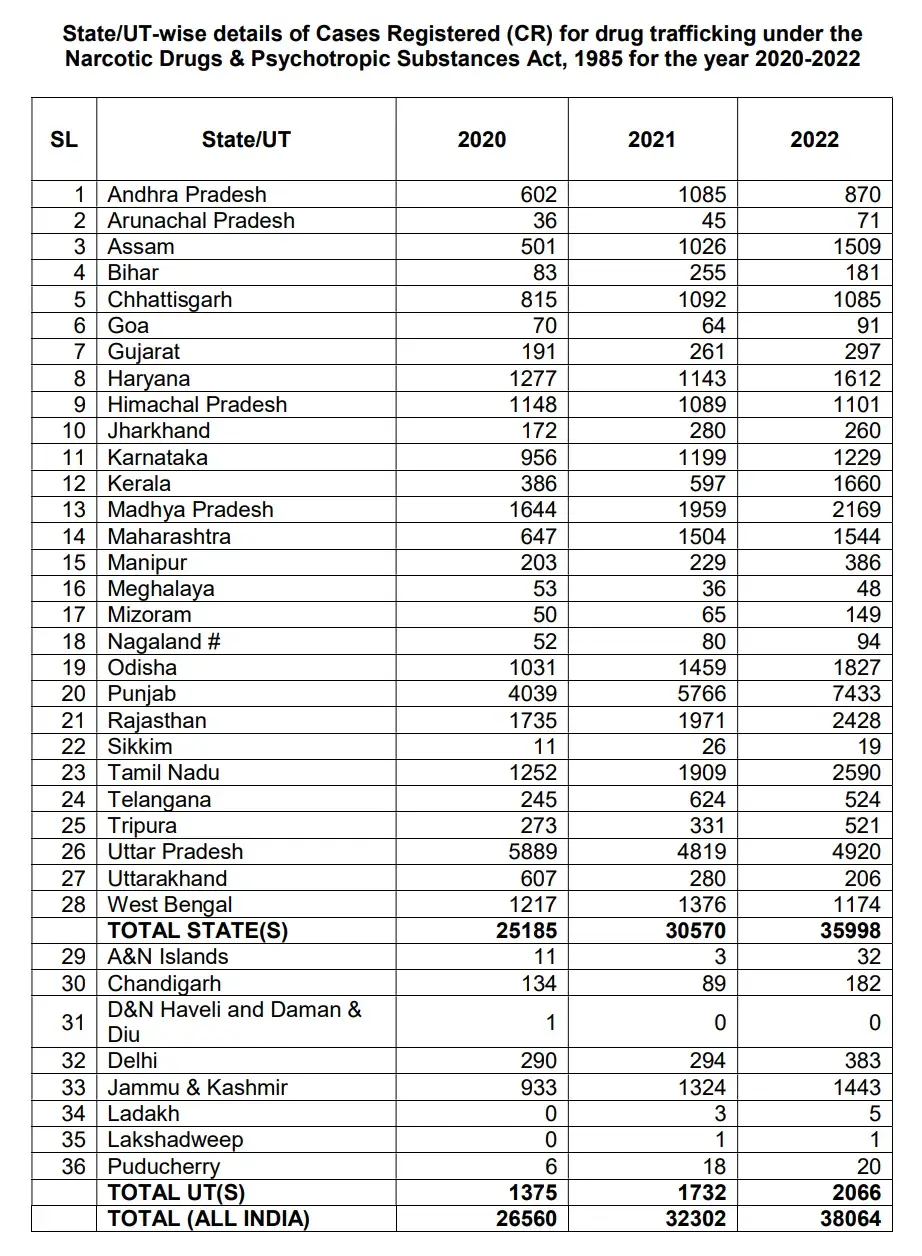- India’s NCB targets darknet crypto misuse amid rising drug trafficking cases.
- Recent crackdowns uncover massive scams, highlighting the urgent need for stricter crypto regulations.
As a seasoned researcher with extensive experience in the field of illicit activities and their connection to digital currencies, I have witnessed firsthand the growing threat posed by the misuse of cryptocurrencies in various criminal activities, including drug trafficking. The recent crackdowns on such cases in India, as highlighted by the Narcotics Control Bureau (NCB) and the Enforcement Directorate (ED), have shed light on the urgent need for stricter regulations to curb these illicit practices.
As more people embrace the use of cryptocurrencies, there’s been a concerning upward trend in their application towards unlawful activities, including but not limited to scams, fraud, and narcotics trading.
India’s role in curbing crypto misuse
The Narcotics Control Bureau (NCB) in India is keeping a close eye on cryptocurrency transactions taking place on the darknet as part of their extensive plan to curb drug trafficking.
During a Parliamentary meeting on the 24th of July, Nityanand Rai, the Minister of State for Home Affairs, explained India’s present strategies for limiting the entry and transfer of narcotic drugs within the country.
According to a report released by the Government of India’s Ministry of Home Affairs,
The Narcotics Control Bureau (NCB) has filed 92 investigations relating to Darknet and cryptocurrencies between 2020 and 2024, while a total of 1025 cases dealing with parcel or courier deliveries have been documented by all drug enforcement agencies during the same period.

The rise of crypto in drug trafficking
The findings indicate that the involvement of cryptocurrencies in drug trafficking incidents in India has shown some variability over the years. However, there’s been a consistent upward trend in drug seizure cases linked to the Darknet and cryptocurrencies since 2022.
To tackle this, Rai suggested,
A team specifically designated for investigating Darknet and cryptocurrency transactions pertaining to illegal drugs has been established.
The report also offered a state-by-state analysis of drug trafficking incidents, highlighting that Punjab State in India reported the most cases during the years 2020 to 2022.

Some recent case studies
A Rs 3,000 crore digital currency fraud was recently discovered in Uttarakhand, India, through the joint efforts of the Enforcement Directorate (ED) and the US Federal Bureau of Investigation (FBI).
Two people were taken into custody following a lengthy investigation, which uncovered their involvement in a global drug smuggling ring.
Collaboratively, India and the United States took down a criminal organization involved in cryptocurrency transactions worth $360 million, which drugs were their focus. This incident underscores the importance of stronger regulatory measures.
The need for strict regulation
As a researcher, I’d like to share that Gaurav Mehta, with his hat as a social activist and the CEO of Dharma Life, drew attention to some regulatory issues that merit consideration in the digital realm.
He underscored the importance of implementing robust policies to discourage the use of cryptocurrencies in illicit activities. He made this point clear.
Without regulations in place, criminals are encouraged to continue their illicit activities in the realm of cryptocurrencies. The current justice system and law enforcement agencies struggle to keep up, being insufficiently equipped and competent to tackle crypto-related crimes effectively. Consequently, victims are left feeling powerless in the face of this regulatory gap.
Read More
- Gaming News: Why Kingdom Come Deliverance II is Winning Hearts – A Reader’s Review
- Jujutsu Kaisen Reveals New Gojo and Geto Image That Will Break Your Heart Before the Movie!
- We Ranked All of Gilmore Girls Couples: From Worst to Best
- Why Tina Fey’s Netflix Show The Four Seasons Is a Must-Watch Remake of a Classic Romcom
- How to Get to Frostcrag Spire in Oblivion Remastered
- Disney Cuts Rachel Zegler’s Screentime Amid Snow White Backlash: What’s Going On?
- PI PREDICTION. PI cryptocurrency
- Assassin’s Creed Shadows is Currently at About 300,000 Pre-Orders – Rumor
- First U.S. Born Pope: Meet Pope Leo XIV Robert Prevost
- Is the HP OMEN 35L the Ultimate Gaming PC You’ve Been Waiting For?
2024-07-25 19:04